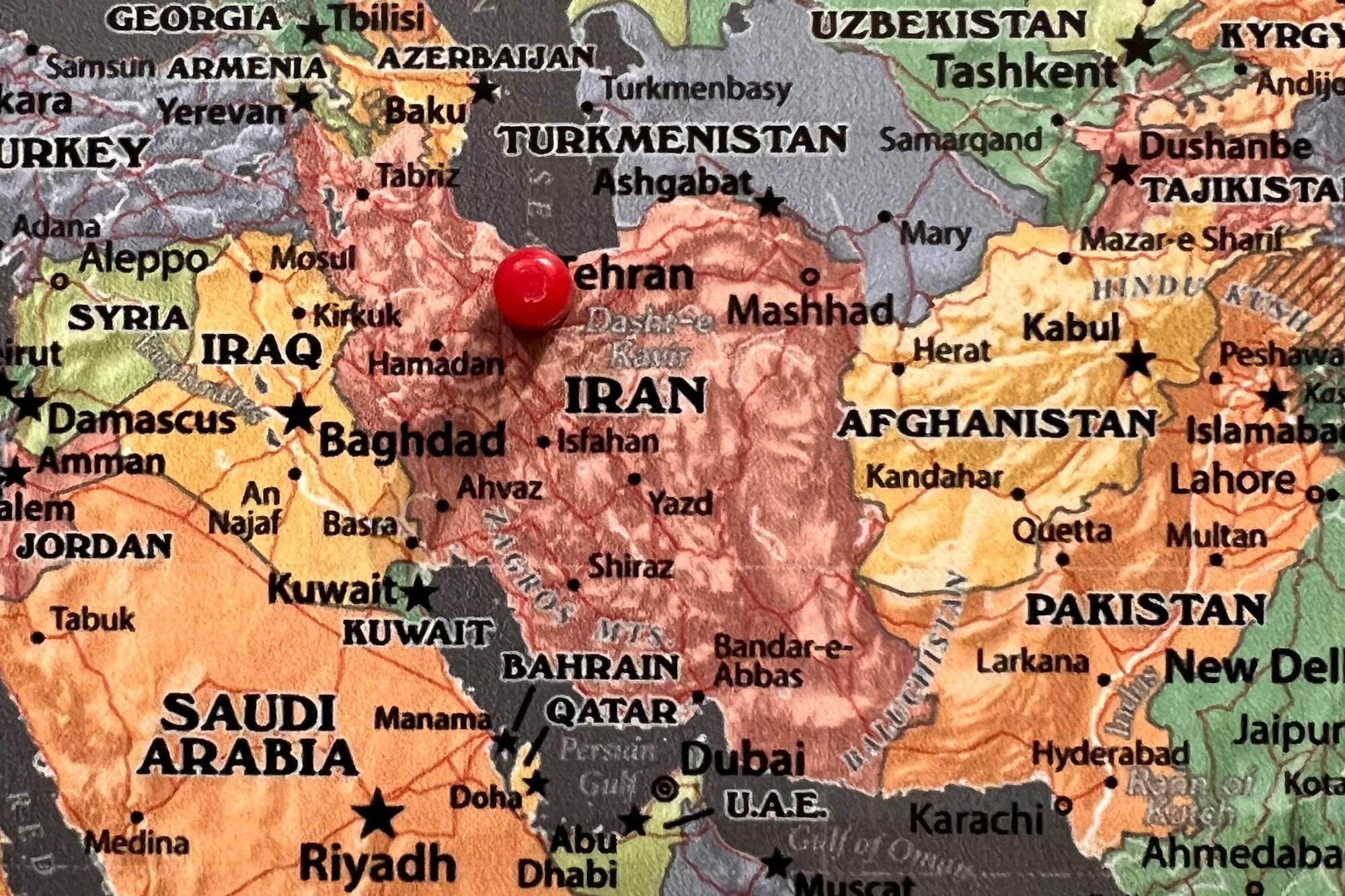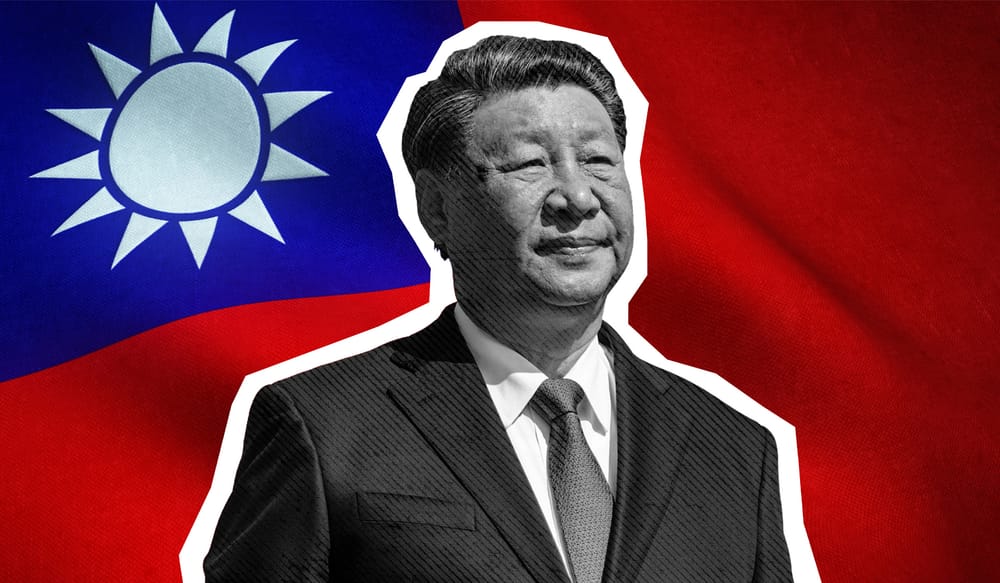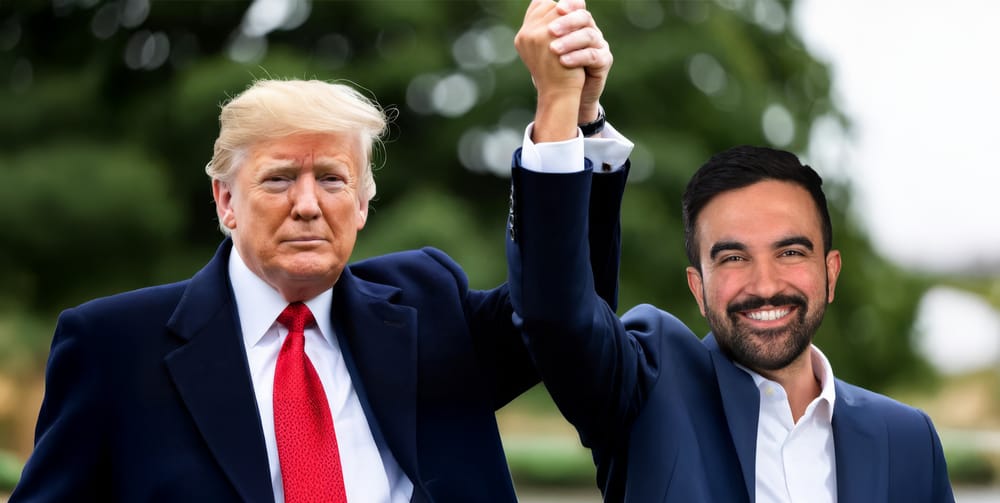For all the emotions expressed globally about the ongoing presidential election in the United States, the reality is that no matter who wins, it's not going to fundamentally alter the country's stance towards both its enemies and allies.
Of course, most political leaders – ironically, from both camps – would choose Harris over Trump, simply because she's a lifetime bureaucrat backed by a party that is very predictable. Her opponent is not and that makes him far harder to negotiate with or anticipate his moves over the coming 4 years.
That said, quite regardless of who comes out on top eventually, USA is going to keep its international course as, despite high domestic polarisation, there is a surprisingly broad agreement as to the country's global goals.
Ongoing competition with China (including potential invasion of Taiwan), destabilisation sowed in the Middle East by Iran and European overdependence on the US for security are recognised as strategic issues by both Republicans and Democrats.
None of them are going away or can be solved for good by any of the competing candidates for the Oval Office.
The only difference is in the toolkit applied – and decisiveness in using it to its fullest extent.
Let's examine it using the seemingly most contentious issue:
Russian war in Ukraine
Media reports would have you believe that once Donald Trump is elected president he's going to feed Kyiv to Moscow, forcing it to capitulate to Putin and call it peacemaking.
In reality, however, what have Democrats really done for Ukrainians since 2022?
In the early days of Russian invasion neither Europe nor America were eager to offer any meaningful aid to Ukraine, anticipating its swift collapse. Ironically, one of the things that prevented it was a contingent of Javelin anti-tank missiles sold to Kyiv by... the Trump administration back in 2017.
In fact, not even following Russian annexation of Crimea in 2014 did Obama/Biden admin authorise sales of lethal weapons to Ukraine, out of fear for antagonising Kremlin. It was Trump who did.

Yes, following the full scale invasion in February of 2022 and successful Ukrainian repulsion of the Russian forces, both Americans and Europeans gradually sent more military aid to the embattled country – although very slowly and after months of outright begging by president Zelenskyy.
Nevertheless, even after 3 years of warfare the country has only recently started receiving its first F-16 jets, while none of the "allies" has permitted Kyiv to use long-range missiles to attack targets within Russia yet.
Is this how Ukrainians are supposed to win the war? With one arm tied behind their backs, fighting a much larger nation freely propped up by China, Iran and, now, North Korea?
Is this what Trump's critics call "support"?
In fact, universal lack of reaction to thousands of North Korean soldiers sent to the frontlines only amplifies the sense of betrayal.
This is why I find it cries about Donald Trump willing to push Ukraine to collapse to be rather dishonest, since nobody is actually doing enough to help the country win – despite the combined economic advantage both the EU and US have over Russia.
The conflict has largely become frozen, with Ukrainians never receiving quite enough help, as they are gradually pushed back by Russians throwing even more cannon fodder into the meat grinder. This is not tenable.

A painful settlement, which would see some regions (which had traditionally been problematic to Ukrainian politics anyway) ceded to Russia, in exchange for security guarantees and integration with the EU could be a better outcome than having tens of thousands of young Ukrainians throwing their valuable lives away each year.
Of course terms of the peace will matter greatly, but perhaps at least in the realm of diplomacy Americans and Europeans can jointly use their leverage against Moscow to minimise damage.
And if it comes to this, can anybody seriously argue that Kamala Harris would surely do a better job at it than Donald Trump?
So, no, Trump's victory doesn't mean doom for Ukraine just like Kamala's win can't guarantee a Russian defeat. In both cases we're looking at a more-less rotten compromise, as neither appears to be willing to do what's necessary to humiliate Vladimir Putin.
And you can observe a similar pattern in other areas of American foreign policy.
Middle East
Neutralising Iran is the prerequisite to achieving greater stability in the region – that is understood both by the American left and the right.
The former, however, seeks to talk with Iranian regime while the latter would rather see it obliterated. Neither, unfortunately, has proven its methods to be successful.

But also neither is willing to abandon Israel, even though the Democratic party is traditionally more demanding of the government in Jerusalem, due to the support for Palestine among its far left voters.
Benjamin Netanyahu likely prefers Trump over Harris but, as ever, will deal with either given the influence of the pro-Israeli lobbies in the US politics.
The Republican billionaire boasts an advantage in his relations with Arab monarchies, especially Saudi Arabia which plays a pivotal role in the region.
American left has taken a confrontational stance against the Saudis, especially following the murder of Jamal Khashoggi, but that has become an obstacle to extending the Abraham Accords and cementing the Arab-Israeli block against Iran.
On the other hand, even with American security guarantees for Riyadh, that would be unlikely to stop Tehran from clandestinely funding extremists and separatists around the region, keeping conflicts in Yemen, Palestine, Syria or Lebanon alive.
Broad peace accords between Arabs and Jews would be as historic as they would be symbolic, since no real conflict exists between them anymore.
It's what to do with Iran that remains a problem. Diplomacy can't solve it, since the theocratic regime in Tehran is fundamentally untrustworthy and remains in bed with both Moscow and Beijing.
Military means, however, like the impressive assassination of Qassem Soleimani by Trump administration in 2020, are still only temporary deterrents.

Since an outright invasion would not only be extremely difficult, given Iran's geography, but also deeply unpopular, there's no chance for a meaningful change to the status quo unless real opposition, backed at least by some segments of the local army, emerges within the Iranian society.
US president then, regardless of who he is, has his hands tied.
Speaking of Iran's allies, though...
China
There are few areas in which agreement between Democrats and Republicans is as complete as it is about the need to push against the Chinese threats: economic, political and military.
Regardless of the occupant of the White House, Washington's establishment will push in sync to contain Beijing.

Trump, again, in his trademark style, may be more determined and decisive in his actions, already warning of imposing record tariffs on Chinese goods if he's elected. However, the fundamental dynamic of the conflict between the US and China will not change regardless of who wins.
It's also hard to expect that any individual decision could defeat Beijing (or vice versa), as both countries remain deeply intertwined. As a result, any clashes on trade will produce some collateral damage.
Similarly little can be done about Taiwan's fundamental weakness – that it lies over 11,000 km from American shores and any military intervention by the US would be inherently difficult, if not impossible, should Xi Jinping decide to invade.
USA may be well aware of the need to counter China, but it is wary of bearing the full costs of such rivalry, regardless of the will of its leadership.
The difference might, however, be in the pace of the competition.
Does it matter who wins at all?
It certainly matters more in domestic American politics. For everybody else it's mostly a difference in style not substance.
Democrats, whom Harris represents, are more predictable, pliant, weaker, slower and receptive to conversation. Trump, on the other hand, is his own man, as ever direct, capricious, brash and demanding of everybody.

His approach is sure to be more costly even for American allies but is also likely to produce meaningful decisions quickly, instead of endless talks leading nowhere.
Ultimately, however, both American left and right are increasingly transactional in foreign policy. Democrats are just more polite and slower about it.
In many ways Donald Trump may be a better choice for the world – like an unpleasant medication you don't want to take but one which may make you feel better in the end.
Despite widespread resistance, he was right to push Europe to abide by its defence spending targets under NATO agreements. He was right criticising Germany for its overdependence on Russian gas and oil. He was right to start a trade war with China, even though it isn't without costs. He was right to support Israel. He was right to kill Qassem Soleimani. He was right to side with the Arabs. He was right to sell weapons to Ukraine.
With or without him, we were heading largely in the same direction, but far more slowly and erratically.
And, in global geopolitics, that might be the biggest difference between him and any rival that the Democratic Party could field.









